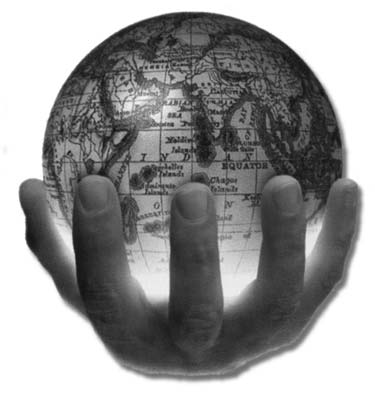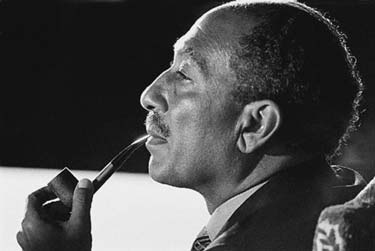![]()
Write us!
socialistviewpoint@pacbell.net
Blind Imperial Arrogance
By Edward Said

The great modern empires have never been held together only by military power. Britain ruled the vast territories of India with only a few thousand colonial officers and a few more thousand troops, many of them Indian. France did the same in North Africa and Indochina, the Dutch in Indonesia, the Portuguese and Belgians in Africa. The key element was imperial perspective, that way of looking at a distant foreign reality by subordinating it in one’s gaze, constructing its history from one’s own point of view, seeing its people as subjects whose fate can be decided by what distant administrators think is best for them. From such willful perspectives ideas develop, including the theory that imperialism is a benign and necessary thing.
For a while this worked, as many local leaders believed—mistakenly—that cooperating with the imperial authority was the only way. But because the dialectic between the imperial perspective and the local one is adversarial and impermanent, at some point the conflict between ruler and ruled becomes uncontainable and breaks out into colonial war, as happened in Algeria and India. We are still a long way from that moment in American rule over the Arab and Muslim world because, over the last century, pacification through unpopular local rulers has so far worked.
At least since World War II, American strategic interests in the Middle East have been, first, to ensure supplies of oil and, second, to guarantee at enormous cost the strength and domination of Israel over its neighbors.
Every empire, however, tells itself and the world that it is unlike all other empires, that its mission is not to plunder and control but to educate and liberate. These ideas are by no means shared by the people who inhabit that empire. But that hasn’t prevented the U.S. propaganda and policy apparatus from imposing its imperial perspective on Americans, whose sources of information about Arabs and Islam are woefully inadequate.
 |
|
Anwar Sadat
|
 |
|
Yasser Arafat
|
Several generations of Americans have come to see the Arab world mainly as a dangerous place, where terrorism and religious fanaticism are spawned and where a gratuitous anti-Americanism is inculcated in the young by evil clerics who are anti-democratic and virulently anti-Semitic.
In the U.S., “Arabists” are under attack. Simply to speak Arabic or to have some sympathetic acquaintance with the vast Arab cultural tradition has been made to seem a threat to Israel. The media runs the vilest racist stereotypes about Arabs—see, for example, a piece by Cynthia Ozick in the Wall Street Journal in which she speaks of Palestinians as having “reared children unlike any other children, removed from ordinary norms and behaviors” and of Palestinian culture as “the life force traduced, cultism raised to a sinister spiritualism.”
Americans are sufficiently blind that when a Middle Eastern leader emerges whom our leaders like—the shah of Iran or Anwar Sadat—it is assumed that he is a visionary who does things our way not because he understands the game of imperial power (which is to survive by humoring the regnant authority) but because he is moved by principles that we share.
Almost a quarter of a century after his assassination, Sadat is a forgotten and unpopular man in his own country because most Egyptians regard him as having served the U.S. first, not Egypt. The same is true of the shah in Iran. That Sadat and the shah were followed in power by rulers who are less palatable to the U.S. indicates not that Arabs are fanatics, but that the distortions of imperialism produce further distortions, inducing extreme forms of resistance and political self-assertion.
The Palestinians are considered to have reformed themselves by allowing Mahmoud Abbas, rather than the terrible Yasser Arafat, to be their leader. But “reform” is a matter of imperial interpretation. Israel and the U.S. regard Arafat as an obstacle to the settlement they wish to impose on the Palestinians, a settlement that would obliterate Palestinian demands and allow Israel to claim, falsely, that it has atoned for its “original sin.”
Never mind that Arafat—whom I have criticized for years in the Arabic and Western media—is still universally regarded as the legitimate Palestinian leader. He was legally elected and has a level of popular support that no other Palestinian approaches, least of all Abbas, a bureaucrat and longtime Arafat subordinate. And never mind that there is now a coherent Palestinian opposition, the Independent National Initiative; it gets no attention because the U.S. and the Israeli establishment wish for a compliant interlocutor who is in no position to make trouble. As to whether the Abbas arrangement can work, that is put off to another day. This is shortsightedness indeed—the blind arrogance of the imperial gaze. The same pattern is repeated in the official U.S. view of Iraq, Saudi Arabia, Egypt and the other Arab states.
Underlying this perspective is a long-standing view—the Orientalist view—that denies Arabs their right to national self-determination because they are considered incapable of logic, unable to tell the truth and fundamentally murderous.
Since Napoleon’s invasion of Egypt in 1798, there has been an uninterrupted imperial presence based on these premises throughout the Arab world, producing untold misery—and some benefits, it is true. But so accustomed have Americans become to their own ignorance and the blandishments of U.S. advisors like Bernard Lewis and Fouad Ajami, who have directed their venom against the Arabs in every possible way, that we somehow think that what we do is correct because “that’s the way the Arabs are.” That this happens also to be an Israeli dogma shared uncritically by the neo-conservatives who are at the heart of the Bush administration simply adds fuel to the fire.
We are in for many more years of turmoil and misery in the Middle East, where one of the main problems is, to put it as plainly as possible, U.S. power. What the U.S. refuses to see clearly it can hardly hope to remedy.
Edward Said is a professor at Columbia University and the author of “The End of the Peace Process: Oslo and After” (Pantheon, 2000)
—Los Angeles Times, July 22
Write us
socialistviewpoint@pacbell.net